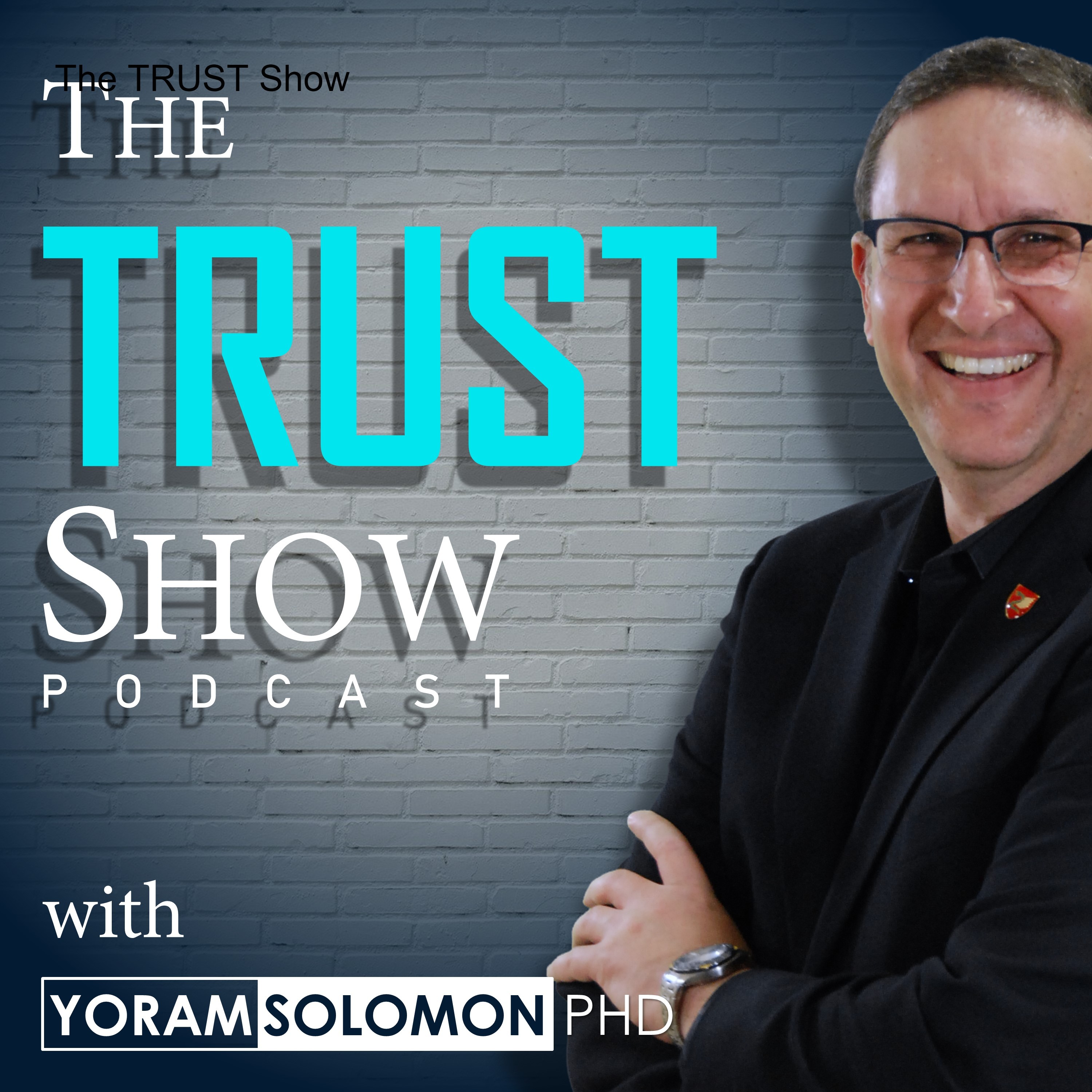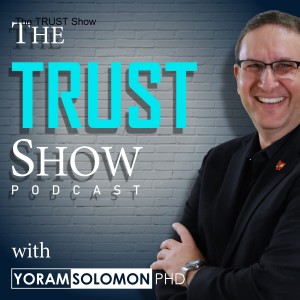
16.1K
Downloads
190
Episodes
Trust is not what you think it is. It is not absolute or universal. Trust is relative. The same behavior that would cause one person to trust you could cause another person to distrust you. The level of trust someone has in you is the product of their trustfulness (their willingness to trust other people) and your trustworthiness. There is almost (I said ALMOST) nothing you can do about the former, and everything you can do about the latter. Because of that, you must evaluate your own trustworthiness one relationship at a time, separately. Odds are, though, that the same behaviors that are holding you back from being more trusted in one relationship are holding you back from being more trusted in other relationships. Welcome to The Trust Show. I’m your host, Yoram Solomon, a top 10 trust expert and researcher, the author of the book of trust, and the creator of the Trust Habits® workshop that helps people and organizations form new habits that change old behaviors, build trust, and transform organizations. In this educational podcast, I will challenge you to think differently about trust, through the 8 laws of trust and the 6 components of trustworthiness. I will share my own stories, experiences of others, trust research, and sometimes, reflect on a news item. And through those, I will show you how to build trust, be trusted, and know who to trust. Because the answer to this question will have the biggest impact on your personal and professional, success or failure: can you be trusted?
Episodes

Sunday May 22, 2022
S5E8: TRUST and Feedback—Part VI: Feedback and Feed Forward
Sunday May 22, 2022
Sunday May 22, 2022
There is a new approach to feedback, referred to as “feed-forward” (compared to “feed backward”, which is what the classic type of feedback is referred to). The idea behind “feed-forward” is that instead of giving feedback after the deed is done, when there is no opportunity to implement this feedback (at least not on the deed that was already done), you should give “course corrections” while the work is still being done. It is forward-looking (thus “feed-forward”) compared with backward-looking (thus “feed-back”). In this episode, I explain more about the philosophy of feed-forward, compare it with classical feedback, and provide tips on how to decide which one you should choose in a specific situation.

No comments yet. Be the first to say something!